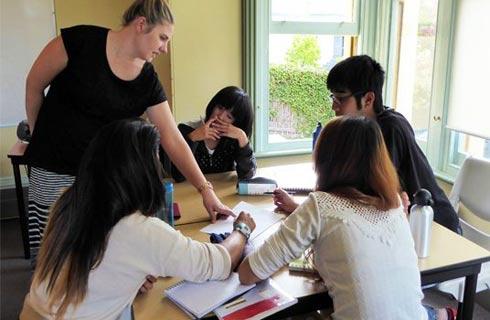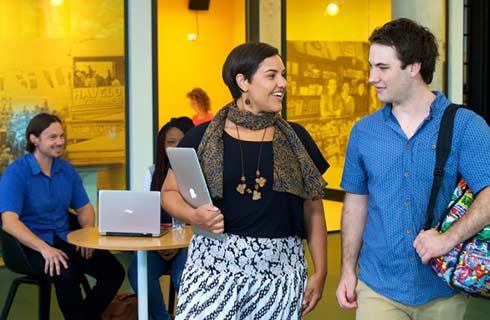- IDP China>
- 课程库>
- 社会科学>
- 社会科学>
- 经济学>
- Doctor of Philosophy in Economics - Economic History, Institutions, and Political Economy
经济学哲学博士-经济史,制度和政治经济学
Doctor of Philosophy in Economics - Economic History, Institutions, and Political Economy

学历文凭
Ph.D.

专业院系
Department of Economics

开学时间

课程时长

课程学费

国际学生入学条件
IDP—雅思考试联合主办方

雅思考试总分
7.0
- 雅思总分:7
- 托福网考总分:96
- 托福笔试总分:160
- 其他语言考试:PTE - 68 overall (with 68 in writting)
CRICOS代码:
申请截止日期: 请与IDP联系 以获取详细信息。
课程简介
The Economics Program offers graduate study leading to the Doctor of Philosophy degree. During the course of study toward the Ph.D., doctoral students also have the opportunity to obtain a Master of Arts degree. Areas of specialization include: Advanced Macroeconomics, Advanced Microeconomics, Behavioral and Experimental Economics, Comparative Institutional Economics, Econometrics, Economic Development, Economic History, Environmental and Natural Resource Economics, Industrial Organization, International Finance and Macroeconomics, International Trade, Labor Economics, Political Economy, and Public Economics. Economic history, institutions, and political economy study overlapping questions. Economic history studies the structure and performance of societies through time. Markets, technologies, resources, and institutions play a central role in our explanations. Comparative institutional economics seeks to understand variations in the functioning of socioeconomic systems over both space and time, focusing on institutions and culture as fundamental determinants. Researchers in the comparative institutional field use the gamut of research methods to understand both the determinants and effects of institutions and culture. Political economy studies political institutions themselves using tools of economic analysis, the role of political institutions in shaping economic outcomes, as well as the role of the economy in political outcomes. Some current research areas include the behavior of political leaders, the role of elections in shaping outcomes, and lobbying and campaign contributions.
相关申请
 预科
预科 奖学金
奖学金 实习机会
实习机会 在校学习
在校学习 跨境学习
跨境学习 校园授课-线上开始
校园授课-线上开始 在线/远程学习
在线/远程学习
开学时间&学费
学费信息仅供参考,请与IDP联系以获取详细信息
| 开学时间 | 时长 | 学费 | 地点 |
|---|
学校排名

世界排名91
数据源:
泰晤士高等教育世界大学排名
关于马里兰大学帕克分校

马里兰大学帕克分校,是um系统的旗舰创始学校,成立于1862年。um—college park 也是全美大学联盟的61个盟校之一;与美国的其它名校,如uc-berkley、ucla、michigan—ann arbor或伊利诺大学—香槟分校都有合作教学的计划。地理位置优越,环境优良,在学术声望上也有全美前50的排名。由于马里兰大学帕克分校是一所州立大学,而且又有充足的研究经费与良好的学校声誉,它与民间的公私立机构建立了不错的互信关系。um总是不吝于提供马里兰州政府、地方性实验室、或各级学校机构它们的最新学术成果;而这些地方机构也都乐于提供um的学生可供研究的数据或任何工读机会。马里兰大学帕克分校也对不少非营利性机构提供协助,经过这几年的推行,已经有了不少丰硕的成果。马里兰大学学院市分校有八个图书馆,分别为McKeldin图书馆、McKeldin图书馆、艺术图书馆、建筑图书馆、工程与物理图书馆、Hornbake图书馆、表演艺术图书馆、Shady Grove图书馆与媒体中心、化学图书馆。 学校位于位于一个名为College Park的大学城之中,与美国首府华盛顿、文化中心巴尔地摩及州首府安纳玻里斯为邻,大学与他们之间的距离均在半个小时左右,整个城镇不但闹中取静,保存着浓厚的学术气氛之外;生活品质也有别于华盛顿特区的龙蛇杂处,享有非常好的治安。马里兰大学是世界最负盛名的综合性大学之一,也是美国最著名的公立研究型大学之一和美国大学联合会(Association of American University) 60名会员之一。作为马里兰州高等教育的典范和办学规模最大的学校,马里兰大学坚持以科研为特色,每个校区下设多个学院,授予本科、硕士、博士学位和各种技术职称。马里兰大学-帕克分校(Pepperdine University)在美国大学排名2012为第53名。
本校相关课程

Undergraduate Certificate in Women, Gender, and Sexuality Studies
学历文凭
Advanced Certificate
开学日期
课程费用总额


Bachelor of Arts in Theatre
学历文凭
Bachelor Degree
开学日期
课程费用总额


Bachelor of Arts in Studio Art
学历文凭
Bachelor Degree
开学日期
课程费用总额


Bachelor of Arts in Spanish
学历文凭
Bachelor Degree
开学日期
课程费用总额


Bachelor of Arts in Sociology
学历文凭
Bachelor Degree
开学日期
课程费用总额


Bachelor of Arts in Russian
学历文凭
Bachelor Degree
开学日期
课程费用总额










 美国
美国